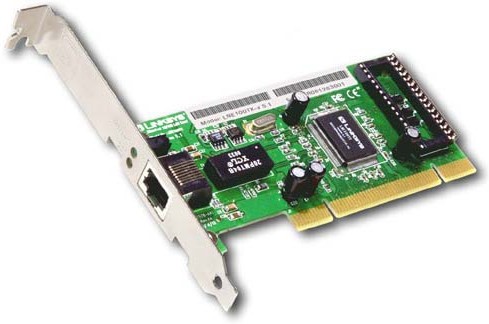Free Sound Card Drivers For Windows 8

Hello everyone, please this is my first time i'm questioning about something that i'm still confused about. Would you mind help me choose a compatible sound card for my new Windows 8.1 pro 64bit?
Aug 31, 2016 Free downloads & security; Education. Download and install drivers in Windows 8.1. And then double-tap or double-click the video card name. Driver sound card Windows 8 downloads - Free Download Windows 8 driver sound card - Windows 8 Downloads - Free Windows8 Download.
I've been recommended the Asus Xonar D2X from some people as I've been looking for a good end sound card for gaming as well as for watching movies and that was the highly recommended for me and for my budget of (140 $) but my current problem now is that before buying it I went looking into some Forumes and heard ppl talking about Drivers issues in windows 8.1 and now i have no idea what to buy any more. Any help will be appreciated, thanks in advance My Rig: Asus P8P67 Evo i7 2600k OC @ 4.7 G-skill 16 Gb 2400 Mhz Zotac Gtx 780 Windows 8.1 pro 64bit Samsung HDTV 32 1080p Series 5000. All motherboards have on board sound these days.
Very few people would get benefit from a sound card. The speakers or head phones you use will have a much bigger impact on the sound you hear. USB headphones don't make use of on board sound or a sound card at all. Same is true if your sound comes from a HDMI cable connected to your video card. The sound device in these cases is the headphones or video card.
If you do connect speakers or headphones to the audio output on your motherboard, you would have to use very good speakers or headphones before you could notice any difference a sound card could make. Asus Xonar DX offers a signal-to-noise ratio of 116dB. Asus Xonar D2X offers a signal-to-noise ratio of 118dB. There are other features, but this the most common measure of sound quality in sound cards. It is certainly not true that any addin sound card is better than any motherboard integrated audio.
Check your motherboard specification. You will something like this: Realtek ALC889 codec or VIA VT2021 Check the following tables for specifications: (for Realtek) (for VIA) The Realtek ALC889 codec has a signal-to-noise ratio of 104dB.
The VIA VT2021 codec has a signal-to-noise ratio of 110dB. Cheap sound cards may be lower. There is a real question of whether you will be able to tell the difference between an SNR of 100dB or 118dB.
Certainly your speakers don't do a high end sound card justice. If sitting in front of a PC, headphones are a much more affordable option for quality sound. Look at something like Audioengine speakers for balanced full range response from computer speakers.
For a lounge room setup, look at a real home theatre solution. I have a Yamaha amplifier with Wharfedale speakers connected to a motherboard with the VT2021 codec. The connection is through HDMI, so a digital signal is sent to the amplifier for processing. As I understand it, when outputting a digital audio signal (e.g. DTS), the codec plays no part. The signal-to-noise ration produced is then based on the device decoding the digital audio (the amplifier in this case). If you really feel you need a sound card, and you are using the sound card for games and movies, the Asus Xonar cards are a good choice.
Asus Xonar DX offers a signal-to-noise ratio of 116dB. Asus Xonar D2X offers a signal-to-noise ratio of 118dB. There are other features, but this the most common measure of sound quality in sound cards. It is certainly not true that any addin sound card is better than any motherboard integrated audio. Check your motherboard specification. You will something like this: Realtek ALC889 codec or VIA VT2021 Check the following tables for specifications: (for Realtek) (for VIA) The Realtek ALC889 codec has a signal-to-noise ratio of 104dB. The VIA VT2021 codec has a signal-to-noise ratio of 110dB.
Cheap sound cards may be lower. There is a real question of whether you will be able to tell the difference between an SNR of 100dB or 118dB. Certainly your speakers don't do a high end sound card justice. If sitting in front of a PC, headphones are a much more affordable option for quality sound.
Look at something like Audioengine speakers for balanced full range response from computer speakers. For a lounge room setup, look at a real home theatre solution. I have a Yamaha amplifier with Wharfedale speakers connected to a motherboard with the VT2021 codec. The connection is through HDMI, so a digital signal is sent to the amplifier for processing.
As I understand it, when outputting a digital audio signal (e.g. DTS), the codec plays no part. The signal-to-noise ration produced is then based on the device decoding the digital audio (the amplifier in this case).
If you really feel you need a sound card, and you are using the sound card for games and movies, the Asus Xonar cards are a good choice. Download Vb Powerwrap 3 0bits. It took me forever but I've finally made up my mind and found the right choice for my new Windows 8. The Asus Xsonar Cards also pretty good, but actually still some ppl are claiming to have some issues with the audio drivers on Win 8, anyways the one that i have chosen is the Creative X-Fi Titanium HD, best choice at an affordable price with the best performances for either movies, games and music as well, and what is more important for me is audio drivers compatibility with Windows 8 and didn't find anyone that had some problem using it on this OS.